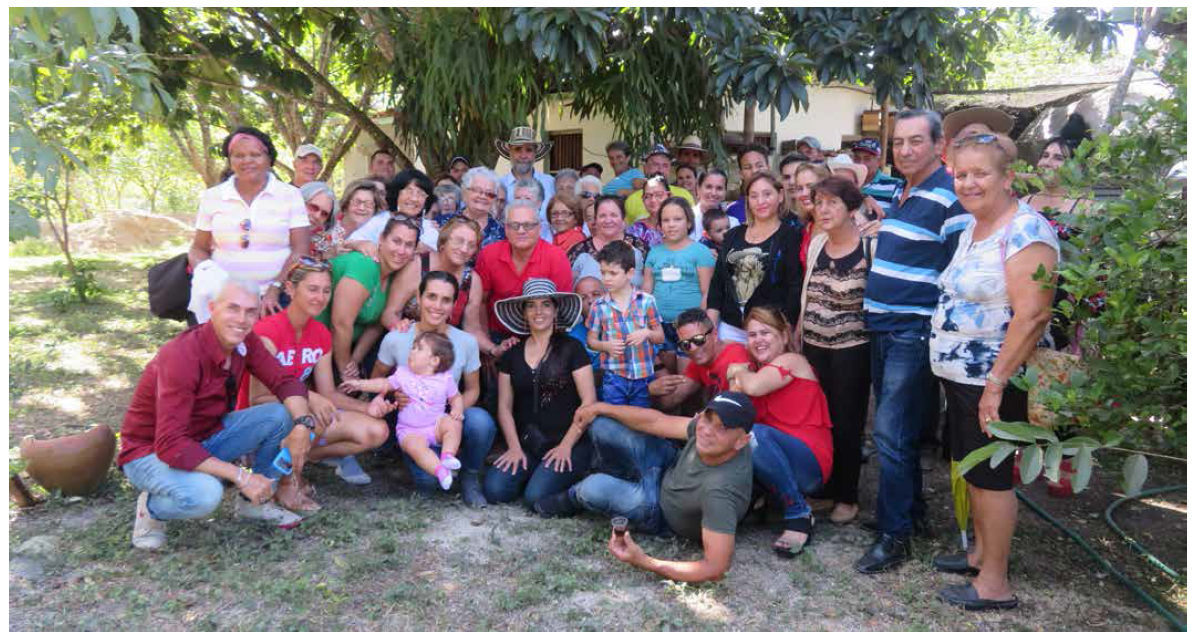Impact of the "Honey over the years" project on the food culture of the elderly in Zaza del Medio
Main Article Content
Abstract
The objective of this article is to present the impacts of the project "Honey in the years" in the community of Zaza del Medio from different intervention actions developed with the older adult in the town, under the focus of improving food culture, raising quality of life and its contribution to local autonomy. Specific tasks were carried out intended to reverse this age into an active force capable of transmitting the food culture to the family and the community, demonstrating that they are capable of learning and contributing their knowledge and skills, if the methodology indicated in the teaching process is applied learning. In the development of the investigation, the analytical-synthetic methods, the inductive-deductive, as well as the documentary analysis were used. In particular, the IAP method (Participatory Action Research) was selected to modify the passive state of the elderly as a transforming agent of reality in their community, by corroborating this age as a stage of human development useful to the family and to society. . Among the techniques, the interview, discussion group and participant observation were applied to verify the action of the older adult in the sociocultural environment in which he intervenes. A group of activities were carried out with the theoretical and practical elements necessary to assume the third age in its biological, psychological and social multi-dimension, offering options, knowledge and skills that facilitated active participation in food culture and local development on sustainable bases.
Downloads
Article Details
References
Brito, G. (2012: 5). «Valoración biopsicosocial del adulto mayor desde un enfoque bioético en una población cubana». Trabajo original evista cubana Medicina General Integral. vol.28 no.4.oct.-dic. La Habana. Versión ISSN 0864-2125.
Casimiro, L. et al. (2017:191). Resiliencia socioecológica de fincas familiares en Cuba. Matanzas: Ed. Estación Experimental de Pastos y Forrajes Indio Hatuey.
Colectivo de autores (2015: 12). «Comunidades. Educación de adultos y desarrollo». Colombia. Revista 81.
Compa nioni, F. et al., citado por Funes, F. (2016: 28). Avances de la Agroecología en Cuba. Matanzas: Ed. Estación Experimental de Pastos y Forrajes Indio Hatuey.
Constitución de la República de Cuba. Artículo 88 (2019: 25). La Habana: Ed. Política.
Díaz–Canel, M. (2019:5). «Crear y aportar desde la Universidad». La Habana: Periódico Granma 14-10-2019.
Díaz–Canel, M. (2020:2). «Producción de alimentos, tarea de todos los días». Periódico Granma 27 abril 2020.
Díaz, T. Isbel (2019). «Guías Alimentarias para la población cubana mayor de dos años». Taller de Educación Ambiental y Patrimonial. Instituto Cubano de Antropología. Tema: Alimentación.
Girela, M. (2015). Seguridad alimentaria y nuevos alimentos. Régimen jurídico-administrativo. Editorial Aranzadi.
González, N. et al. (2015). «Influencia martiana del adulto mayor en la transformación sociocultural de las comunidades». Evento Internacional Edumayores 2015. Universidad de La Habana. Digital.
González, N. et al. (2019). «Intervención del CUM Taguasco en el desarrollo sostenible y seguridad alimentaria del territorio ». XIX Taller provincial de EPMI de la UNISS.
Harris, Marvin (2005: 392). «Teorías sobre la cultura en la era posmoderna». Antropología Lecturas, segunda edición. La Habana: Ed. Félix Varela
Horruitiner, P. (2008: 116). La Universidad Cubana: el modelo de formación. La Habana: Editorial Félix Varela.
Instituto Latinoam ericano de Investiga ciones Sociales (2016). «Seguridad alimentaria una vía para Centroamérica y Panamá». Editorial Biblioteca.
«Lineamientos de la política económica y social del Partido y la Revolución». (2017: 21). La Habana. Impresora política.
Martí, J. (1975: 289). Obras Completas, t. 8. La Habana: Imprenta Nacional de Cuba.
Orosa, T. (2003: 11). La tercera edad y la familia. Una mirada desde el adulto mayor. La Habana: Ed. Félix Varela.
Ortiz, F. (2006: 111). «Del fenómeno social de la transculturación y su importancia en Cuba». Tomado de Cultura Cubana, parte 1.La Habana: Ed. Félix Varela.
Pérez, L. et al. (2015: 107). «¿Qué municipio queremos? Respuestas para Cuba en clave de descentralización y desarrollo local ». La Habana; Ed. Universidad de La Habana.
Taylor, E. B. (2005: 62). «Los orígenes de la cultura». Tomado de Antropología Lecturas, segunda edición. La Habana: Ed. Félix Varela.
Vázquez, M. (2010). «Programa docente de formación de profesores en cultura alimentaria para adultos mayores». Tésis en opción al título de Máster en Ciencias. Universidad de La Habana.

